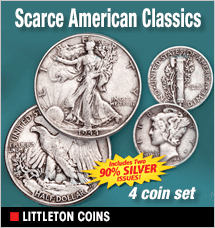
Reading books when I was a kid enriched my imagination. Dime-store paperbacks were portable gateways into fantasy worlds and science fiction. Zane Grey’s tales of the western frontier and Robert Louis Stevenson’s Treasure Island swept me away into unknown lands of dangerous adventures. The Hardy Boys mysteries kept me up past my bedtime.
When I finished reading a good book, I would close it gently together and hold it in my hands for just a moment. I’d stare down at the front cover like it was a precious jewel reflecting its rare beauty back into my eyes.
Books are officially in crisis today. Like the dinosaur, the printed page is becoming extinct, especially for the younger generations. School libraries are now technology centers. Students carry few textbooks with them. They pop open laptops in their classrooms for their information. Most printed novels are now digitalized. Convenience and cost have brought about the decline in hard copies of publications.
Several recent studies have been conducted to determine if students comprehend what they read better from the printed or the digital word. A report published by Lauren Singer and Patricia Alexander from the University of Maryland showed that students read digital formats much faster, but lacked the in-depth comprehension that they had gleaned from printed texts. As you might guess, these students were convinced they understood what they read off the screen much better than from a book and overwhelmingly preferred digital to print.
The read-to-speed factor affected comprehension. Students scrolled screens twice as fast as they turned pages, but they couldn’t grasp underlying meanings and themes nearly as well that were read on their laptops.
Researcher Lori Reese concluded that the current generation of students has been trained to believe the faster you read, the better reader you are and that reading slowly is reading badly. So students think they’re stupid if they are slow readers. She also concluded that if the material can’t be easily skimmed, its content is too hard for them to bother with anyway.
Teachers have a dilemma. Books cost money and need replacement, but they can be proven to be more effective in teaching reading comprehension. Furthermore, students have been taught since their primary years that computers are better than books because they can access
information faster and easier. To slow down the reading pace of young readers would be like reducing the speed on the turnpike to 35 miles per hour. How do you think that would work out?
Reading scientists have determined that the black word on a white screen is not comfortable to the eye and that’s why students read as fast as they can. Bring in some gimmickry to solve the problem, Let’s add color to the words that will help the eyes “sweep” across the text more efficiently. The next option would be to choose a color and a font. Perhaps students could change the color of the text to their liking – maybe a lime green or a fuchsia.
Let’s face it. We’re not going to throw away our Apples for hard copies of Tolstoy’s War and Peace. And yet, the fact remains that electronic scrolling physically removes text from view one page at a time, but a book opens to two pages and looking back to reread requires a simple shift of our vision instead of rolling back a screen to some forgotten or misunderstood content.
I find a sense of ironic humor when I think back about the old television vertical hold dials. When they malfunctioned, the picture kept flipping and watching a program was difficult to say the least. Now laptop readers have become the vertical holders, the flippers if you will, of info – screens, while trying to recall content that becomes lost from one vertical flip to another.
I’d like to conduct an experiment with high school students of similar intelligence. Have one group read a hard copy of a newspaper from front to back and another group scroll the same material online. I would think the screen scrollers would finish reading before the page-turners, but after they take a test on the information, who would get the better grade?
In nearly all situations of life, we prefer convenience instead of effort. Why buy newspapers that have to be bundled and taken to the recycling center when hitting the delete button saves making the trip.
Books make clutter. Read them once and then what do you do with them? Donate them somewhere. Pack them up and drive them to the destination, or just let them sit in boxes in the basement and take up space better suited for other purposes.
So the debate continues inside my thoughts. Turn the pages or scroll the screen. I just picked up an old copy of Huckleberry Finn. I’ve read this story more than once. It’s my favorite book and all I have to do is look at the worn cover and once again, I’m rafting down the muddy Mississippi River with Huck and Jim in search of peace and freedom.
You won’t find me curling up with a MacBook Pro novel later tonight. I will be turning the papered pages into a new and exciting adventure from a place I’ve never been before.



























































